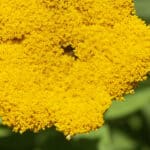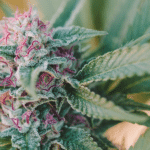How often have we heard, “More research is needed,” from those who would prefer to see no change in policies that should be informed by science? From climate denial to cannabis prohibition, the demand for absolute scientific certainty is a call for inaction.
It begs the question: When is there “enough” research?
How about not enough to eliminate all uncertainties, but enough to recommend medical treatment or change policy?
Published in September 2018, a meta-analysis of CBD treatment for epilepsy provides “enough” research – both to say that CBD is effective in certain kinds of epilepsy, and that CBD-rich extracts are generally better medicine than CBD isolates.
Three Brazilian scientists – Fabricio Pamplona, Lorenzo Rolim da Silva and Ana Carolina Coan – examined data from 11 different studies comprising 670 patients who were treated for an average of 6 months. The meta-analysis focused specifically on three kinds of childhood seizures (Dravet, Lennox-Gastaut, and those caused by CDKL5 deficiency), and sought to describe the effectiveness, required doses, and side effects associated with cannabidiol.
The authors further analyzed the differences between CBD-rich extracts and CBD isolates. Epidiolex (FDA-approved pharmaceutical CBD) and some unregulated, hemp-derived CBD products are considered isolates, as they lack the full spectrum of other cannabinoids and terpenes that are present in whole-plant extracts.
It Works!
Seventy-one percent of people using CBD-rich extracts had reduced seizure frequency, compared with 46% of those using CBD isolates.1 Both of these numbers are incredible. What’s more, the population was treatment-resistant, having tried between 4-12 medications for three years before using CBD.
The authors also examine whether the improvements met specific thresholds: How many people had greater than 50% reduction of seizures (a typical threshold used in medicine)? How many had greater than 70%? Complete cessation of seizures?
Both the whole-plant extracts and CBD isolates helped cut the number of seizures in half for roughly 40% of patients, once again suggesting that both formulations – single-molecule and whole-plant – can be highly effective medicines.
Both formulations reduced seizures by 70% in about one quarter of the patients, but fewer studies recorded this. And roughly one in 10 patients using CBD became seizure-free, although not enough studies reported this metric to compare different formulations.
Less Is More
Perhaps the most striking conclusion of this study is the dramatic difference in doses for isolates compared to full spectrum CBD-rich oil extracts. The mean dosage for people using pure CBD was 25.3 mg/kg/day, but for CBD-rich extracts it was 6.0 mg/kg/day.
In other words, CBD in a whole plant extract was over 4 times more potent than isolated CBD. This result is a reflection of what’s known as the “entourage effect,” whereby the therapeutic impact of the whole plant is greater than a single compound or even the sum of the plant’s individual medicinal components.
We can say that “more research is needed” to fully understand the biochemical basis of the entourage effect in epilepsy, but we are well past the point of questioning its existence and importance.
Adverse Events
Whole-plant cannabidiol also distinguished itself from isolate CBD with a lower rate of side effects. Isolate CBD was associated mild adverse events2 in 73% of patients, whereas whole-plant CBD was associated with mild adverse events in only 33% of cases. The authors suggest that this difference is due primarily to the lower dose of CBD used when formulated as a whole-plant extract.
It’s worth noting that many of these “side effects” are present in the absence of CBD, and that adding CBD to treatment tends to reduce these side effects, so the numbers may be overestimates.
What’s a Meta-Analysis?
A meta-analysis is a specific kind of study meant to draw firmer conclusions once many papers have been published on a single topic. It is used to determine quantitative information, and can also help determine the basis for different results that the initial studies did not have the power to prove.
Meta-analyses, however, are prone to bias when the studies used very different designs, and there was one notable difference between the whole-plant extract and CBD-isolate research. All the isolate studies were prospective, meaning that participants were treated according to a protocol written by the researchers. The whole-plant extract studies, on the other hand, were retrospective analyses or surveys.
The lack of prospective studies with whole-plant extracts is due to the schedule 1 status of marijuana, which seriously hinders research into the medical uses of cannabis. Retrospective studies are slightly more prone to bias, such as underreporting of side effects. Despite the potential for bias, this meta-analysis demonstrates that whole-plant cannabidiol extracts are as effective as CBD isolates, if not more so, and can treat refractory epilepsy at much lower doses.
Adrian Devitt-Lee is a research scientist and longtime Project CBD contributor. © Copyright, Project CBD. May not be reprinted without permission.
Footnotes
1. The numbers reported here are not exactly the same as those reported in the meta-analysis. There were a few minor mathematical errors due to complications when consolidating the various data. The mistakes do not change the conclusions of the original study, and the authors have issued a correction. The correct numbers are reported here.
2. “Adverse events” were defined by the authors of each individual study, which could lead to some bias. Mild events included weight loss, fatigue or sedation, gastrointestinal problems, and nausea. Severe events included alterations in liver function.







